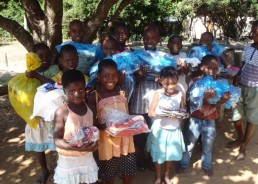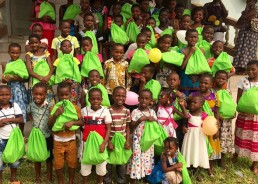“Education is the most powerful weapon which you can use to change the world.”
Nelson Mandela
The Project Phases
Each project is an action towards addressing the identified needs for children and the communities in which they live.
For us, there are different phases in completing each project:
Definition of the Project and feasibility study
- Onsite visits, research on cultural and local habits and sustainability analysis
- Analysis of the underlying need and how to address it in the most efficient way
- Study and initiation of self-sufficient programs
Financial and Operational Due Diligence
- Budgeting the needs
- Financial solution
- Legal and organizational analysis
Implementation of the Project
- Hands on approach at all levels of the project
- Work with local and international partners
- Self-suffiency programs
Follow on of the project
- Monitor the progress
- Internal Reporting
- Potential new developments
“It's not how much we give but how much love we put into giving.”
Mother Teresa
Initiatives
Each initiative is a gesture that makes a little difference to bring a smile to a child’s face.
Mamoli Mission - Mozambique
ABICOM medical centre - Ivory Coast
“God has given us two hands, one to receive with and the other to give with.”
Billy Graham
Our Process
1. The Team
A group of compassionate individuals who want to help.
The team is composed of dedicated individuals who grew up on various continents and want to participate by using their skills, expertise and networks.
We will be closely involved in all steps of the process from general feasibility studies, local visits, understanding of the underlying problematics to the completion of the projects.
2. The Need
Identify major needs, that if addressed, can make a life changing difference.
Our goal is to focus on a very specific need which if addressed, will make a difference to the children and their communities.
3. The Plan
Work on a financial and operational plan.
Our goal is to optimize the equation between needs and financial possibilities in view to look for the best and most cost efficient solutions.
4. The Budget
See what can be done with the financial means we have.
Elaborate on a budget and quantify the financial needs.
5. The Partners
Partnering with the right people to realize each project.
Aim at finding the right local partners to help us realize the project. We may use, for that purpose, assistance from Non-Governmental Organizations (NGO’s) or local associations which are like-minded , for ideas and advice.
6. The Completion
The completion of a project will occur once the identified need has been satisfied.
A project is finalized once we have achieved the goals initially established and confirm that the results are satisfying.
7. The Follow Up
Continuous contact and monitoring of the children and their community.
B for Africa will constantly revisit the sites where the projects were implemented.




